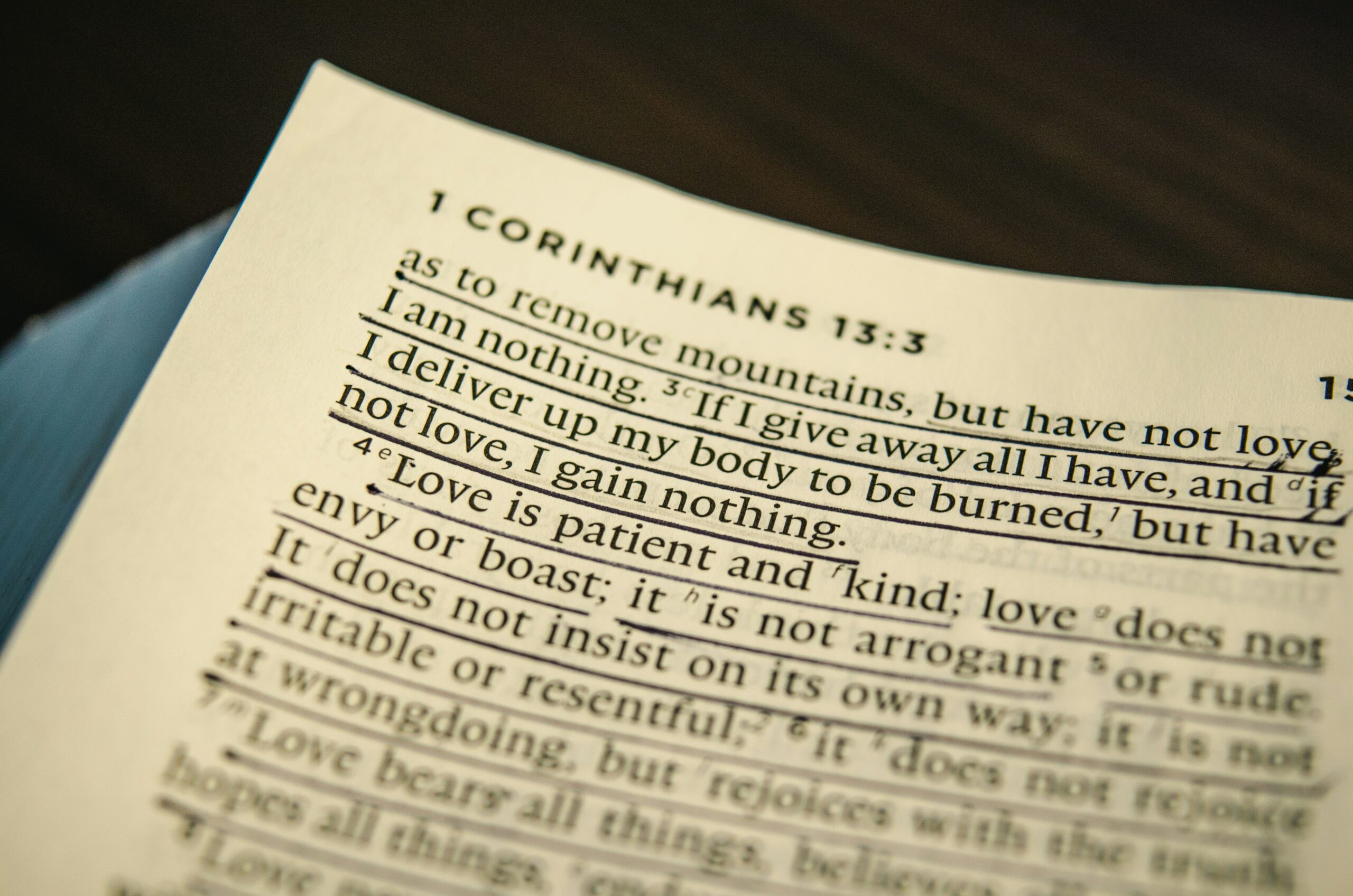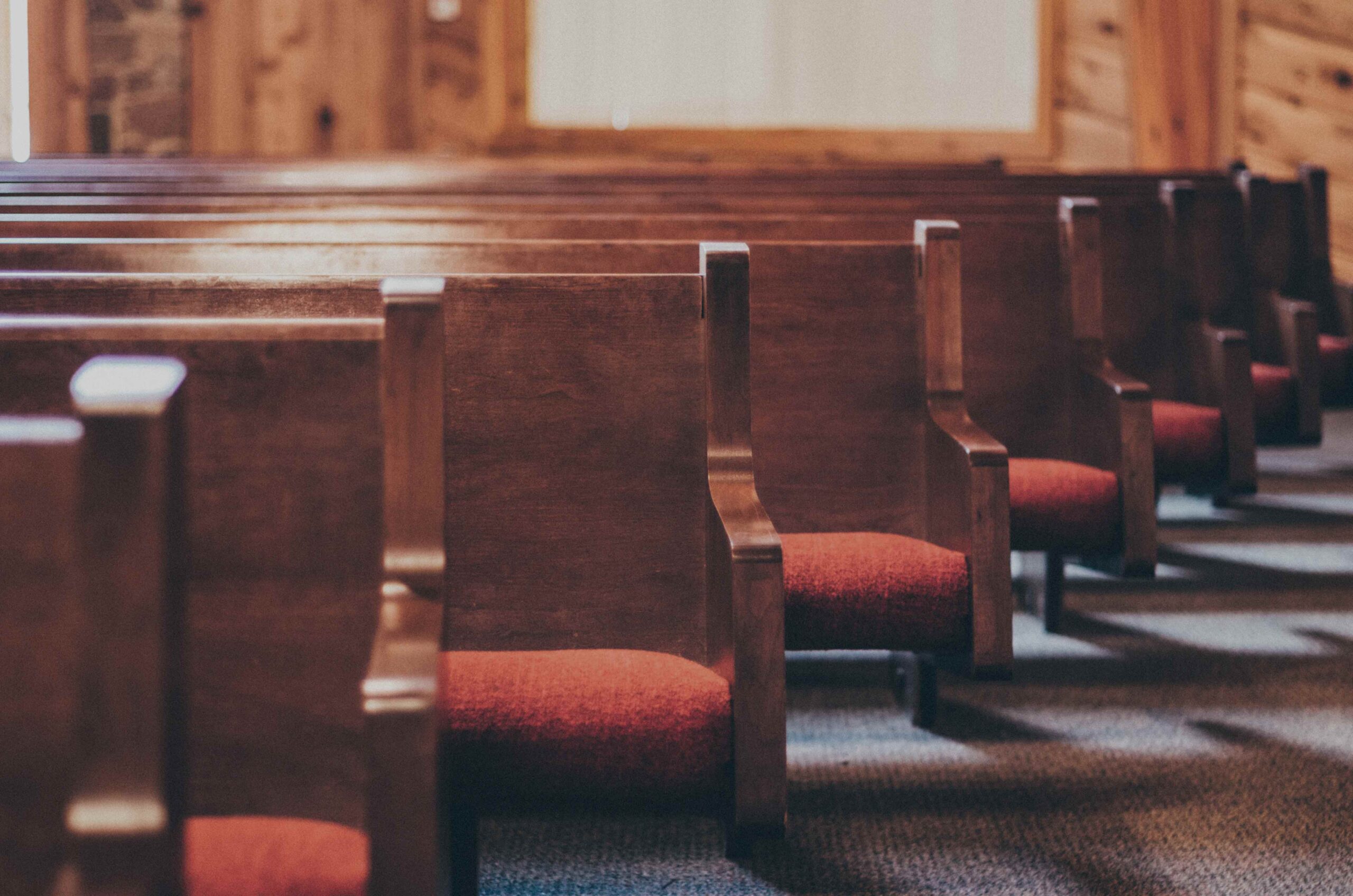
Encourage-[en-kur-ij] to inspire with courage, spirit, or confidence.
The enCourage Blog is weekly dose of encouragement in a world that is often filled with bad news. We offer life-giving entries each Monday and Thursday written by gifted women from across our denomination, the Presbyterian Church in America (PCA). You can subscribe below to have them delivered to your inbox. With hundreds of blog pieces, you can search on a variety of topics in the search bar above to read and share with friends. Christina Fox, a gifted author, serves as our enCourage General Editor. If you are interested in submitting a piece, you can contact her at cfox@pcanet.org.
Looking for the enCourage Podcast? Click here.
Sign up for our weekly enCourage blog:
The Challenge and Hope of Love
BETHANY BELUE | CONTRIBUTOR My children and I have been working our way through a Scripture memory book this school year. Each week, we focus on a different verse, learning it together, memorizing it, playing a song related to it, and weaving it into our week. It’s been a sweet way for us to hide God’s Word in our hearts together. Last week, the passage was short and simple: “Love is patient. Love is kind” (1 Cor. 13:4). Although it was a simpler verse to memorize, it brought so much depth of conversation and meditation. As my husband and I parent our children, we often talk about loving others. What does it mean to put our siblings before ourselves? How can we show kindness to our friends? How can we be patient when we have to wait for things? It’s woven into our parenting and our family values, but in my own heart, memorizing this passage with my children provoked some deeper feelings and struggles. First Corinthians 13:4-7 says, “Love is patient and kind; love does not envy or boast; it is not arrogant or rude. It does not insist on its own way; it is not irritable or resentful; it does not rejoice at wrongdoing but rejoices with the truth. Love bears all things, believes all things, hopes all things, endures all things.” It’s easy to love my children when they are obeying me, to love my husband when he is serving me, to love my friends when they are treating me kindly, but what about all the times when it’s hard to love others?...
A Cat Story: Temptation Leads to Sin or Sanctification
LAURA DAVIS|GUEST She set out without telling anyone where she was going. Her eleven grown children were used to her disappearing, and they scarcely ever worried about her. She was a tough woman who had suffered much in her 67 years—she was the hardworking wife of a farmer who had physically abused her for their entire marriage. She’d proven she could take care of herself. On May 2, 1955, Grandma Gatewood set out from Oglethorpe, GA to become the first solo female to hike 2,160 miles of the Appalachian Trail. She carried a lightweight handmade drawstring bag with a few provisions and wore canvas sneakers on her feet. She brought no map and no plan except to put one foot in front of the other. A Treacherous Journey On September 5, near the end of her journey with almost 2000 miles behind her, she traversed some of the most difficult terrain she had encountered thus far. She had one good lens in her glasses after she accidentally stepped on them, and she limped from a knee injury after a fall. The climb before her was treacherous, the kind of treacherous that was a matter of life or death with just one small misstep. The weather had also become cold and miserable with fat, icy rain drops pelting her skin. Her canvas sneakers, which she has replaced multiple times before, were worn through so that water gushed through the holes and soaked her socks. She was half-blind, limping, wearing worn out shoes, and the path was slick and dangerous. She left the trail to find a town in which to buy shoes, but instead, she encountered a man mowing the grass. He explained there were no towns for miles but offered for his wife to meet her at the next trail intersection with a new pair of shoes. Later that afternoon, she met his wife and when she tried on those new shoes, they were too small. The woman invited her to stay the night and the next day, after giving her shoes that fit, her daughter and a friend joined Grandma Gatewood on the next 10- mile stretch of the trail. For most of the journey, she hiked solo, but for parts of it, this tough woman needed other hikers to encourage and provide for her and to pull her to safety at critical moments. Strangers gave her warm houses, warm meals, and warm beds. She enjoyed their company, and it lifted her spirits. Grandma Gatewood’s story is a picture of life in a hostile world where everything seems set against us finishing the race, but the companionship of others spurs us on. Did the treacherous climb or the miserable weather change? Did she get new glasses so she could see clearly? Did her knee miraculously heal? No, none of these circumstances changed. Rather, she was given a new pair of shoes and companionship. The shoes would eventually wear out again, but the impact of their companionship would last a lifetime...
Bird Watching Wonder
MARIA CURREY | CONTRIBUTOR When we see a beautiful bird soaring above, my husband and I crane our necks until the last feather vanishes. The majesty and soaring beauty of an eagle in flight; enigmatic, insistent whippoorwill calls through wooded cover; bluebirds nesting in reclaimed spaces, prepping their nests for fledglings’ flights, each of these draw our attention and spotlight God’s creative hand. To hear morning mockingbird songs before sunrise, where every note is a symphony of our Creator’s natural orchestrations. Birds hearken to God’s hands of wonder, and we need only lift our eyes to the sky and witness His splendor! Eyes to the sky: “Are not two sparrows sold for a penny? And not one of them will fall to the ground apart from your Father. But even the hairs of your head are all numbered. Fear not, therefore; you are of more value than many sparrows” (Matt. 10:29-31). Ponder the fact that God knows and protects the sparrow; He knows the number of hairs on your head. He is the omniscient, all-knowing God of WONDER who created the whole earth and who knows everything about you. He bestows all-knowing care, love, attention, and protective salvation grace upon you as His one-of-a-kind daughter....
Scheduling Hospitality: Making Space for Others in Our Calendars
AMY SANTARELLI |GUEST It was a Saturday, and I was tired and not feeling up to my to-do list. In a more energetic moment earlier in the week, my husband and I had invited some people to come over for lunch after church on Sunday. But suddenly it was the day before and I was second-guessing our decision because now I needed to go to the store, make food, and clean. I just wanted to take a nap and do whatever I liked. “What were we thinking?” I asked him, as I lugged out the vacuum. Flash forward to Sunday evening, the guests just left, and we plopped down on the couch, happy smiles on our faces. Did we regret scheduling them to come over? Not one bit. Whatever work we went through was worth it for the connection we felt and the joy of serving others, knowing we were helping them feel part of a family. We were already planning who we would invite next as we discovered joy in obeying I Peter 4:9: “Show hospitality to one another without grumbling.” Okay, well, I still needed to do some internal work on the Saturday afternoon grumbling part! Don’t Wait Until You Feel Like It...
Let the (Families of) Little Children Come to Me
LYDIA PINONTOAN | GUEST We sat in the back corner of a hotel ballroom with our 11-month-old daughter, armed with toys and snacks and books. We had travelled as a family from our home in the Middle East to Istanbul, Türkiye to witness some of our favorite authors and preachers mine the theological depths of the Nicene Creed. Some might call us crazy to attempt a theological conference with a baby. They may be right. But it’s rare that this lineup of speakers comes to our part of the world, so we thought we’d give it a shot. The conference started, Dr. Albert Mohler took the podium, and our daughter started to fuss. Quickly I tried all I knew to make her happy, to no avail. I gathered our things, scooped her up, and made for the closest door. For the next 30 minutes or so I played the how-much-can-I-hear-from-the-hallway game and tried my hardest to not feel disappointed that I was missing out on what we had travelled so far to experience. I hopped in and out of the ballroom, trying to entertain my daughter and catch snippets of the opening sermon when suddenly I felt a warm hand on my shoulder. As I turned, my gaze met that of a woman with a smile as warm as her touch. “Please come into the main room,” she said. “Your baby’s noises aren’t bothering anyone, and we want you to hear the sermon. You’re doing a great job and we’re so glad you and your baby are here.”...
Our Shepherd in the Desert
KC JONES | GUEST Growing up in the arid Rockies of Colorado, I did not need anyone to tell me how important it was to drink water and lots of it. I applied lotion twice a day, morning and night, so that my feet and palms would not crack and bleed. I knew better than to go on any excursion alone without taking necessary precautions such as informing loved ones of where I was going, how long it should take, and securing plenty of snacks and water. Lots of water. One does not typically search for water in the desert. It is hard to imagine anyone might find refreshment and restoration in a place consisting of the most extreme elements– scarce in human resources. Yet, for those who see with their spiritual eyes, the desert is precisely the place God uses as a refuge for His own. Perhaps it seems odd that the desert is often used by the Lord to protect His people, provide for them, and to prepare them for what He has for them. If we examine the significance of the desert experience, it might be easier to comprehend God’s purpose for our lives...

Recent Posts
- The Challenge and Hope of Love
- E-315 Just Because It’s Trending Doesn’t Make It True—”God Never Gives You More Than You Can Handle””
- A Cat Story: Temptation Leads to Sin or Sanctification
- Bird Watching Wonder
- E-314 Just Because It’s Trending Doesn’t Make It True—”Let Go and Let God”
- Scheduling Hospitality: Making Space for Others in Our Calendars
Archives







